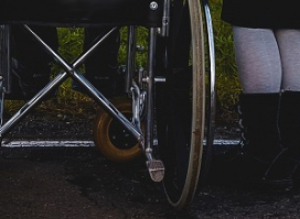How to travel with a disability?
Published 30 Apr 2019 • By Josephine O'Brien
Almost 15% of the world's inhabitants, or one billion people worldwide, have a disability. However, many of them try their hand at the adventure of travel every year. Focus on the best tips for globe-trotting with your wheelchair.

What medical precautions should you take before traveling?
The IncAd form (Incapacited passengers handling Advice) authorises a doctor to give information on the traveller's state of health. The travel company's doctor can thus inform all the departments involved in transporting and accompanying the passenger.
For people who travel frequently, it is better to take the Frequent Traveller Medical Card (FreMec). This is issued by the travel company's doctor for a period of five years. All the passenger has to do is give his number to the company and that's it.
How to get around in a wheelchair?
Many stations and trains are now adapted for disabled people. In the Uk, public transport has developed its offer of services for all disabilities - including such services as The Motability Scheme - which helps disabled travellers concerning cars and scooters.
All European airports also offer assistance to people with reduced mobility according to the regulation of 5 July 2006. On board the plane, many services are available - sometimes for a fee depending on the airline. For example: transfer chairs to take the passenger to the toilet on long-haul flights or free access for one or even two mobility accessories in the hold (wheelchair, scooter, crutches...).

Whatever the airline, it is better to inform them of the situation at the latest forty-eight hours before departure to avoid unpleasant surprises. It is a question of specifying the nature of the disability and any possible elements (assistance dog, companion, wheelchair with its dimensions, etc.).
Where can I find suitable accommodation?
To avoid disappointments when arriving on your holiday, some solutions exist. The easiest way to guarantee comfort is to stay with an organisation specialising in disability. If you are vacating to France, for example, The Association des Paralysés de France, offers about 100 stays each year for some 1,200 people with the help of 1,500 volunteer guides. Many websites offer adapted holiday packages: such as the well-known British company, Disabled Holidays, that allows you to plan and adapt your holiday according to your needs.
On traditional hosting platforms, it is better to ask many questions with as many details as possible to avoid any accessibility problems. In fact, there are numerous applications for your phone which will allow you to travel with more ease and less anxiety, you can find a helpful list by clicking here.
Accessibility: European's ranking

Top : Barcelona
The Catalan capital has accumulated the right points. All sidewalks are lowered, the paths along the beaches are paved, buses are accessible (two wheelchair spaces with belts are even available), the subway platforms are raised to the same height as the train.
Flop: Brussels
The European capital is not a disabled friedly place. Sidewalks are very rarely lowered. Sometimes it is even necessary to drive directly on the road. Very few buses are accessible. And there is a significant gap between the platform and the subway or tramway train.
How about you? How do you adapt for your holidays?
Do you use Apps? Let us know!
5 comments


 Facebook
Facebook Twitter
Twitter





